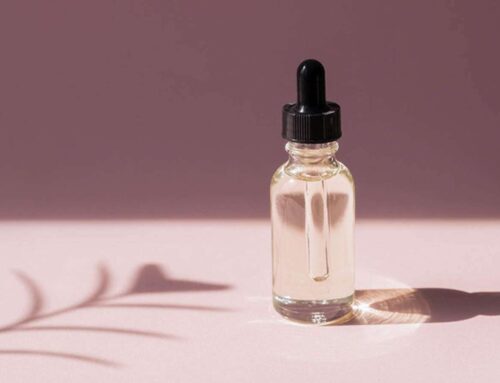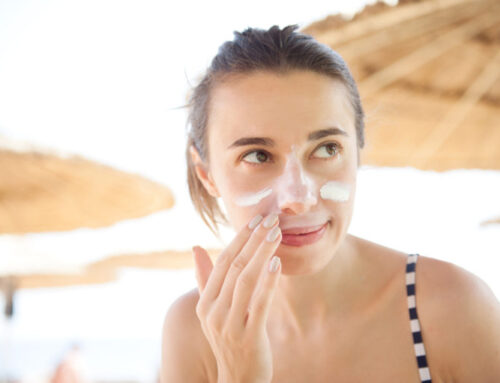
Exploring the Wonders of Retinol: Understanding Its Benefits and Forms
Retinol, also known as Vitamin A, is a member of the broader retinoid family. Renowned as the ultimate powerhouse in anti-aging skincare, retinoids should be an essential component of any anti-aging routine. When applied to the skin, retinol undergoes conversion into retinoic acid (tretinoin), which is its active form within skin cells. Other variants of retinoids include retinaldehyde and retinyl esters. While retinol plays a crucial role in cellular processes, its levels naturally diminish with age and exposure to the sun.
Retinoids can be classified into two main categories: therapeutic retinoids, which require a prescription, and cosmeceutical retinoids.
Among the well-known prescription retinoids are:
- Tretinoin (Retin-A, Retacnyl, Ilotycin-A)
- Adapalene (Differin gel, Dapta gel)
- Isotretinoin (Roacutane, Oratane, Acnetane, Acnetret)
Skincare products incorporate cosmeceutical retinoids, such as retinol, retinaldehyde, and retinyl esters. Several studies have demonstrated that consistent, long-term use of a suitable concentration of retinol in skincare can provide similar benefits to those of topical prescription tretinoin, but with reduced irritation.

Unlocking the Marvels of it: Understanding Its Functions and Benefits
Retinol plays a pivotal role in regulating cellular processes, particularly in cell differentiation and proliferation. When applied to the skin, retinol undergoes conversion into retinoic acid, which then binds to DNA receptors. This process effectively corrects cell defects and facilitates cell turnover. By promoting the faster shedding of dead surface skin cells, retinol contributes to a brighter complexion and assists in treating acne by unblocking follicles.
Moreover, retinoids stimulate the expression of p53 in skin cells, thereby preventing the formation of skin cancer. With their anti-aging properties, retinoids enhance the thickness of the epidermis and stimulate collagen production in the dermis. This results in the reduction of fine lines, wrinkles, and the repair of sun damage.
Furthermore, retinoids are effective in treating hyperpigmentation by accelerating the turnover of the epidermis. They are often combined with ingredients that inhibit melanin production, further enhancing their efficacy.
When is the Ideal Time to Incorporate Retinol into Your Skincare Routine?
Prescription tretinoin is commonly prescribed to teenagers for acne treatment, while retinoids are utilized for addressing psoriasis, scarring, and hyperpigmentation. Therefore, it is generally considered safe to begin using retinol for anti-aging purposes, even in your 20s, particularly if you have sun damage. However, it’s important to discontinue the use of retinoids once you start planning to become pregnant.
Does Retinol Increase Sun Sensitivity?
Yes, retinoids can make your skin more sensitive to the sun. However, they possess antioxidant properties that help neutralize free radicals, enabling them to prevent and reverse sun damage while repairing DNA to reduce the risk of skin cancer.
Considering the fact that retinol levels deplete due to sun exposure, it is indeed advisable to incorporate a retinoid into your skincare routine if you frequently expose your skin to the sun. However, due to the potential for skin irritation, retinoids are typically recommended for nighttime use, and it is crucial to apply sunscreen during the day to protect your skin.
Understanding the Distinctions Between Different Types of Retinoids
Retinoids come in varying strengths, with retinoic acid (tretinoin) being the most potent, followed by retinaldehyde, retinol, and the mildest, retinyl esters. Among these forms, retinol is the most commonly found variant in cosmeceutical skincare products. The concentration of retinoids is a crucial factor in ensuring optimal results. Another noteworthy retinoid is adapalene, a third-generation retinoid that minimally irritates the skin.
Differentiating Retinols from Retinoids
In essence, retinol is a specific type of retinoid. Retinoids serve as the broader category or class of compounds that encompass various forms of Vitamin A derivatives.
Also read: How Stress Affects the Skin
Is Retinol Suitable for Acne-Prone Skin?
Certainly! Retinoids, including tretinoin, were initially introduced for the treatment of acne. Interestingly, it was observed that older patients experienced improvements in skin texture, thickness, and pigmentation. Topical tretinoin and adapalene are considered first-line treatments according to acne treatment guidelines. Retinoids aid in the exfoliation of dead surface skin cells, thereby unclogging follicles. They also possess antibacterial properties and reduce the presence of propionibacterium acnes on the skin.

Can Retinol be Used During Pregnancy?
No, it is not recommended. Oral retinoids, such as isotretinoin, are teratogenic, meaning they can potentially interfere with the development of the embryo or fetus. Therefore, pregnant women, breastfeeding individuals, or those planning to become pregnant should avoid using retinol and its derivatives.
Consistency is key when using any skincare product, including retinol, to witness noticeable results. Texture-related changes may take around two to four months to become visible. Continued usage of retinol will lead to further positive transformations, revealing the enchanting effects of this magical ingredient.





